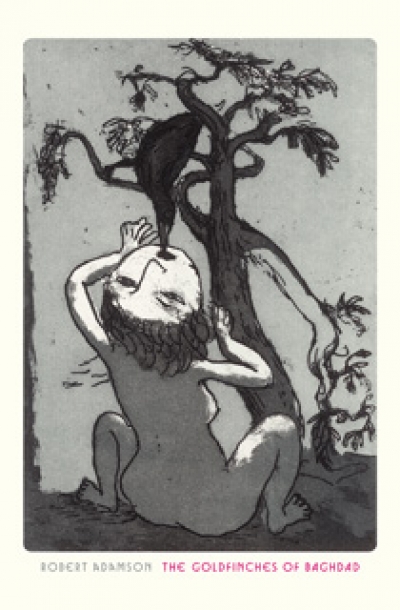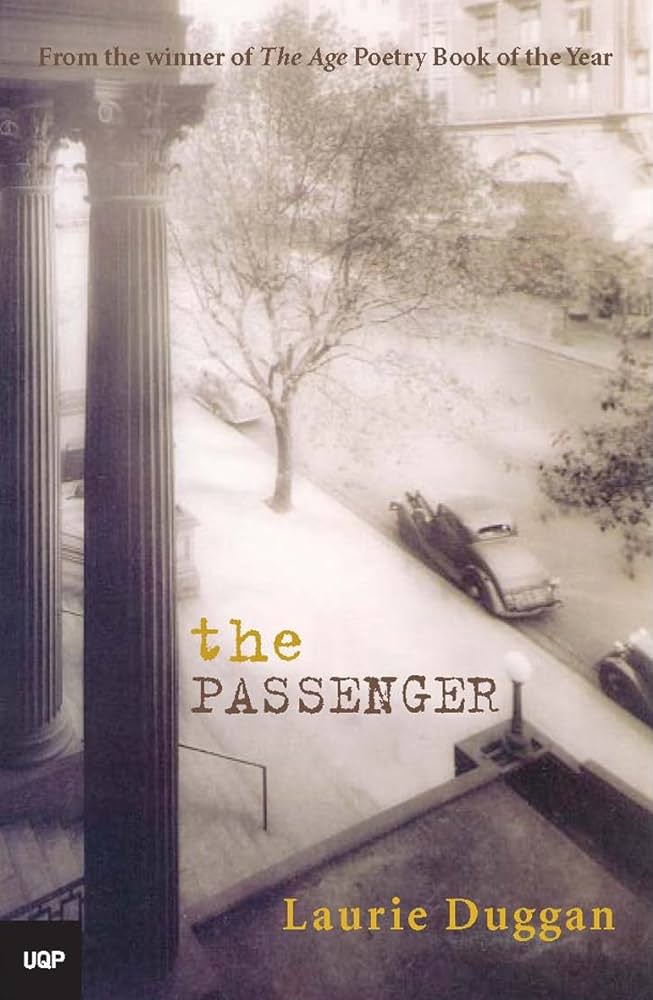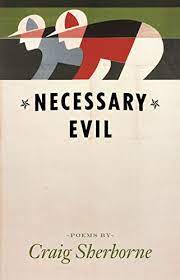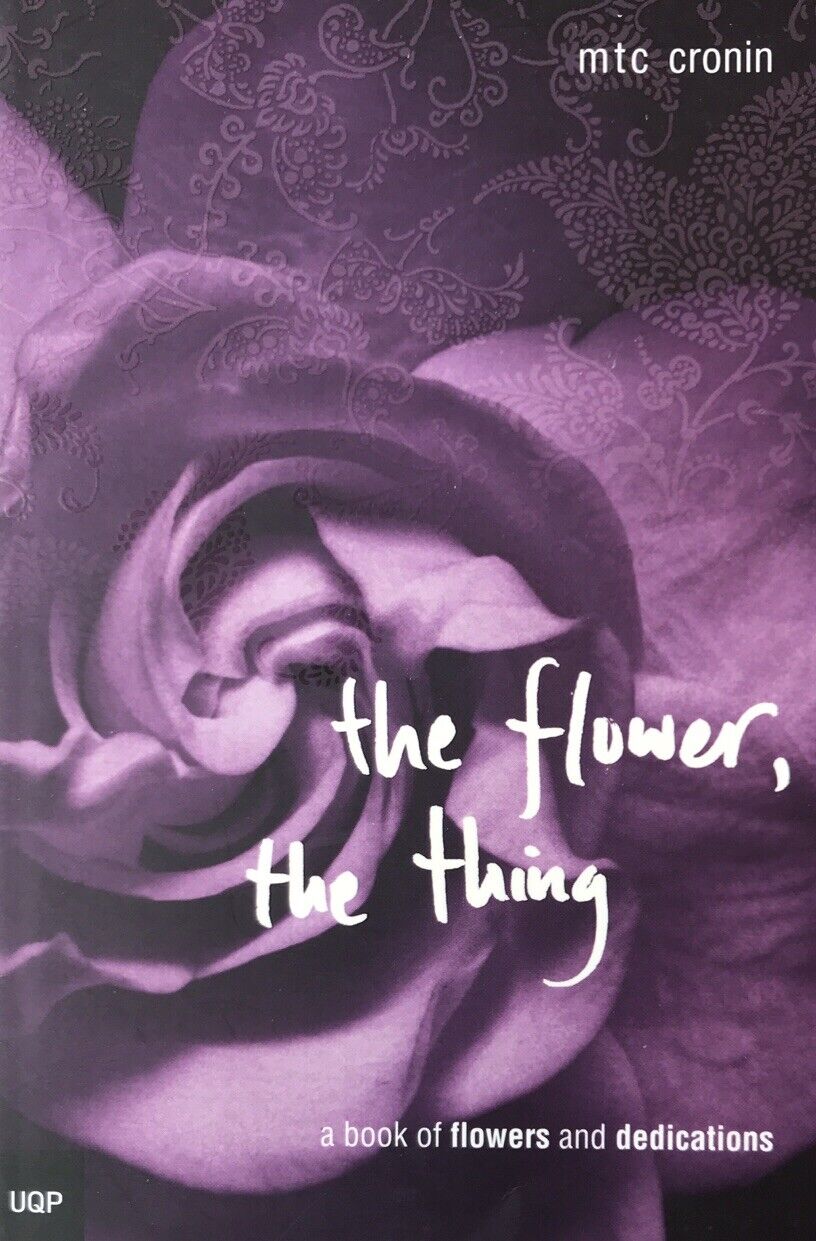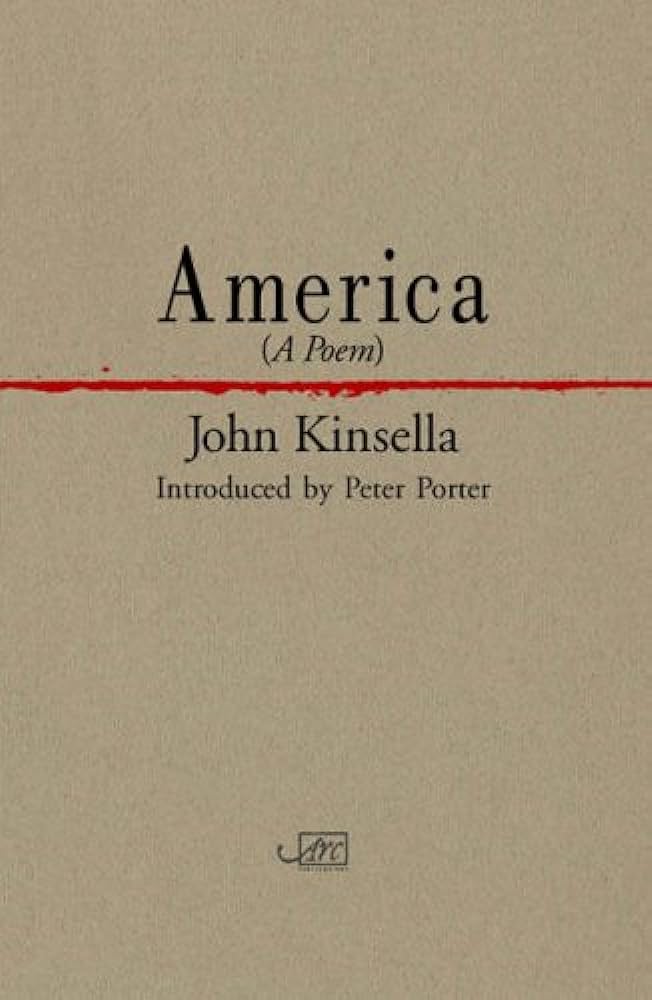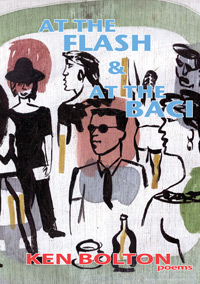Poetry
Critics often comment on the ‘shape’ a poem makes – not the concrete form of the words on the page, but the poem’s conceptual trajectory, the statement, development and resolution (or lack thereof) of its central theme. What is most striking about Robert Adamson’s first collection of poems published in North America, The Goldfinches of Baghdad, however, is the shape the collection makes as a whole ...
... (read more)Approaching a new book by Sydney’s Peter Minter, we are afforded the opportunity to see where a maturing poet is headed. A few years ago, he was very much identified with cutting-edge poetics. More interested in the epistemology of language than most of our poets, he could be seen as an experimental ally of, say, Michael Farrell and the American, Andrew Zawacki. Yet there was sometimes a whiff of the academy about his projects, a certain cerebral coldness. The poems kept holding us at a slippery arms’ length. Cunningly though, he opens the main flow of his new book with Ed Dorn’s concise observation that ‘All academics are hopeless’.
... (read more)How to convey the pleasures of a whole collection of Laurie Duggan’s poetry? They are so various, one reason why Duggan is a source of perplexity to anthologists in search of a definitively characteristic poem. Anything as long and wilfully extravagant in spacing and layout as the anti-rhapsody ‘September Song’ almost automatically excludes itself; something epigrammatic then, say ‘A Little Book of Wisdom’ – but what about a virtuoso pastiche, the sonnets of ‘In Memory of Ted Berrigan’, or a ‘Blue Hills’ poem, with that imagist ‘minimalistic elegance’, which ‘Upside down’ declares: ‘unattractive / as the description of a potential residence / though ok if applied to / a book of poems ... my poems.’
It is even more difficult to find a Duggan poem that will slot neatly into the discourse of a thematic anthology. Against the grain of solidity in so much Australian poetry, there is something elusive here, an unreadiness to be ‘formulated, sprawling on a pin’ like that prototype of modernist angst Prufrock, whose ‘Do I dare to eat a peach?’ mischievously morphs to ‘Do I dare to eat a Porsche?’ in ‘Fantasia on a Theme by TS Eliot’. Mischief is part of Duggan’s very considerable satirical armoury against solemnity: consider ‘this country is my mind’: ‘just two minutes after / Les Murray became a republic / somebody cancelled my visa.’ But mischief is not all; there is something coldly sobering about this other glimpse Duggan offers of the relationship between politics and poetry: ‘At the centre of empire / the poets, stitched, bound / and acid-free.’
... (read more)You set down orange, with a dab of blue
and this grows into art
of a non-offender’s kind,
innocent as a fart in the footy crowd.
Meanwhile, the killing stumbles on
This new and selected poems reminds us, if we needed reminding, just how powerful John Tranter’s cumulated work is. There is a density, an intensity, and a many-sided explorativeness that probably cannot be matched in Australian poetry. Surprisingly, at 210 poems, it is a comparatively small book and has been pretty ruthlessly selected, but there is no doubting the size of its author’s achievement.
... (read more)Craig sherborne is a poet, playwright and journalist. I remember being struck by the poetic quality of a delightful passage in his memoir, Hoi Polloi (2005), where he sketches a child’s view of flirtatious men chatting up younger women at the races: ‘The Members Bar. Race Five. Time of the day when men take women by the waist.’ Peter Craven commends that book as ‘scurrilous and unashamed’ and ‘a comic outrage’. Sherborne brings the same sharp eye, but a somewhat subdued humour, to his new volume of poetry, Necessary Evil.
... (read more)The Flower, The Thing by M.T.C. Cronin & The Last Tourist by Jane Williams
What shapes might poets use to house and craft their various perceptions? Given the absence of a narrative framework, particularly within lyric poetry, what are the possible images and contents through which poetry might weave its insights, and thereby build a tangible structure able to communicate the ephemera of experience and idea? In her most recent collection of poems, M.T.C. Cronin, surely one of the most significant poets writing in Australia today, works explicitly within the artifice of a given structure – a series of poems, titled for alphabetically organised flowers, each with its own specific dedication.
... (read more)Peter Porter, in his introduction to John Kinsella’s new collection, notes that ‘we are all familiar with the surface details of American life. Kinsella does not have to footnote his poem: we recognise his instances immediately … We all speak American.’ Given that Kinsella now lives and works in the United States, Porter also identifies ‘the disillusion at seeing a great exemplar close up’ as one likely catalyst behind the poetic polemic that constitutes this book. Yet it is the surface, the broad impressionistic sweep that we in Australia have absorbed over decades of exposure to American life in our newspapers, magazines, television programmes and popular music, with which Kinsella often engages. One senses that the poet, whether up close or at a distance, would find much about the United States with which to take issue. Nevertheless, his engagement with, and rupturing of, surface in this long poem, or sequence of poems, seems apt. Kinsella smatters the text with allusions to film (ranging from the Marx brothers to Carrie), popular music (George Gershwin to Jefferson Airplane) and numerous other trappings of American life. In doing so, he takes popular culture’s immersion in artifice and turns it against itself.
... (read more)Biplane Houses by Les Murray & Collected Poems by Les Murray
Perhaps only John Shaw Neilson and Judith Wright have brought an equal sense of place to Australian poetry: the sense of place as a fact of consciousness with geographic truth. But in his latest collection, Biplane Houses, Les Murray considers more airy habitations – flights, cliff roads and weather – and the collection has a matching airiness that is only sometimes lightness ...
... (read more)I learnt today, while being read Ken Bolton’s poetry aloud by a friend (a native South Australian), that Hindley rhymes with ‘kind’ and not with ‘wind’. My friend spontaneously started reading to me and couldn’t stop. It runs on, this K.B. speaking voice: compulsive, South Australian, poetic, paranoid, poignant, funny. One way of describing the experience of reading Bolton is that you feel like you are an outsider, looking in at the window, nose pressed against the glass, and inside are all the poet’s friends: children, loved musos, long-term waitresses, artists, favourite poet-heroes. But then K.B. tells you that he is the perpetual outsider, too, solipsistic, meditative. My friend chose, almost randomly, the poem ‘Mostly Hindley Street’, with its wide lines rolled out across the page – in turn witty, desultory, intertextual, local and cosmopolitan – each daring you to take them too seriously, to miss the flipness, daring you to take K.B. seriously, as poet, or person. He might be just like his references (he suggests) – that old prig Thomas Gray, for one, who ‘never spoke out’:
... (read more)
